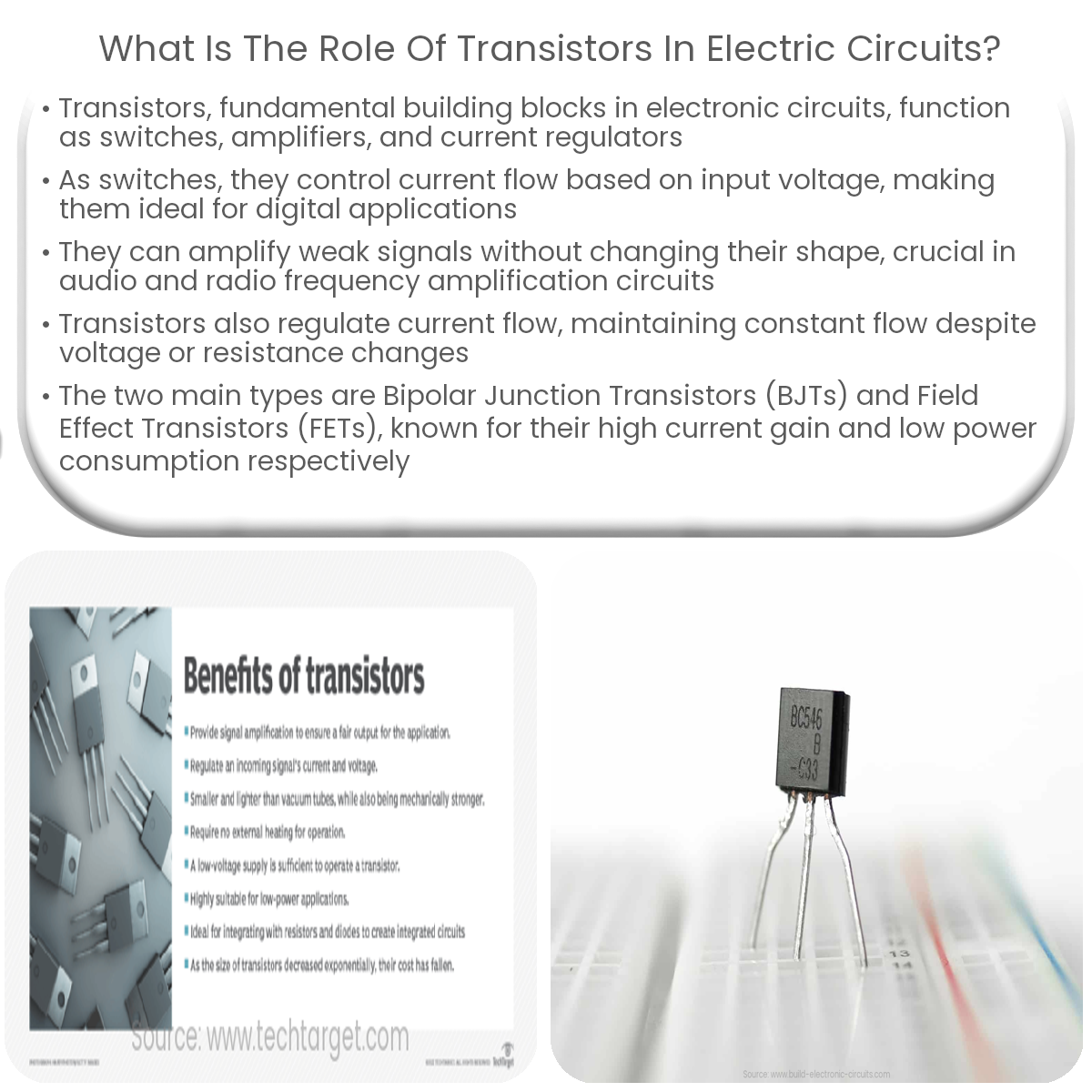Transistors are integral components in modern electronic circuits. They serve as the basic building blocks for a variety of devices, from simple amplifiers to complex computer systems.
Introduction to Transistors
Transistors are integral components in modern electronic circuits. They serve as the basic building blocks for a variety of devices, from simple amplifiers to complex computer systems. In this article, we will explore the role of transistors in electric circuits and understand their significance in the world of electronics.
Transistors: The Fundamental Building Blocks
- Switches: Transistors can function as switches in electronic circuits. They control the flow of current, allowing it to pass through or blocking it, depending on the input voltage. This characteristic makes transistors ideal for digital applications, such as logic gates and memory storage.
- Amplifiers: Another critical role of transistors is their ability to amplify signals. They can increase the amplitude of weak input signals without altering their shape or form, making them essential components in audio and radio frequency amplification circuits.
- Current Regulators: Transistors are also used as current regulators in electronic circuits. They maintain a constant current flow through a load, regardless of changes in input voltage or load resistance. This property is particularly useful in power supply circuits and voltage regulation.
Types of Transistors
- Bipolar Junction Transistors (BJTs): BJTs are made of three layers of semiconductor material and have two pn-junctions. They are available in two types – NPN and PNP, which differ in the arrangement of their n-type and p-type semiconductor materials. BJTs are known for their high current gain and fast switching capabilities.
- Field Effect Transistors (FETs): FETs operate by controlling the flow of current through a channel using an electric field. They are available in two main types – Junction Gate Field-Effect Transistors (JFETs) and Metal-Oxide-Semiconductor Field-Effect Transistors (MOSFETs). FETs are known for their low power consumption and high input impedance.
Conclusion
In summary, transistors play a crucial role in the functioning of electronic circuits, acting as switches, amplifiers, and current regulators. Their versatility and performance have made them indispensable in modern electronics, enabling the development of increasingly sophisticated devices and systems. As technology continues to advance, transistors will undoubtedly remain at the forefront of electronic innovation.


